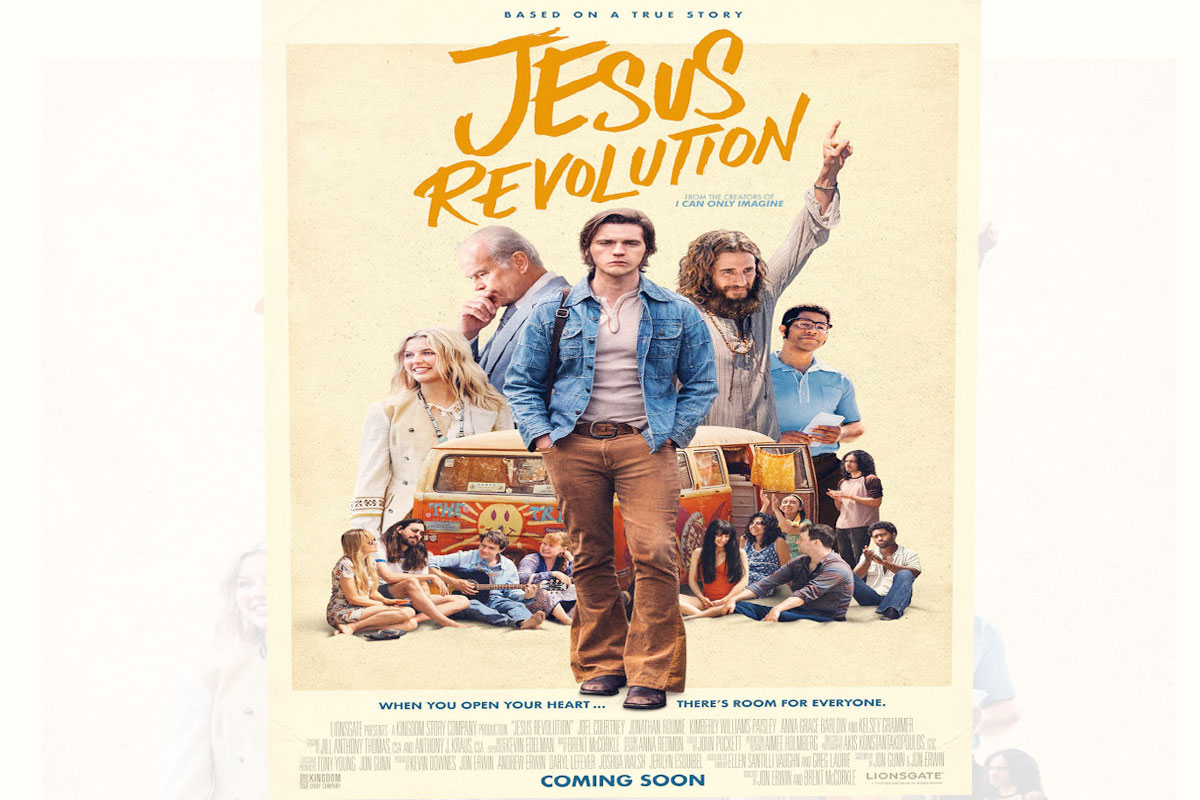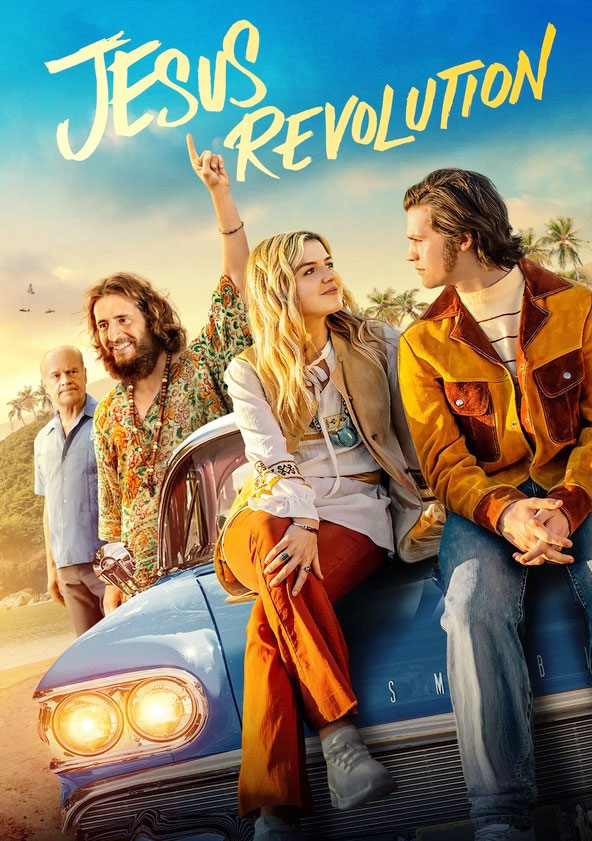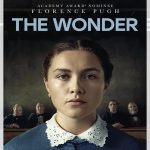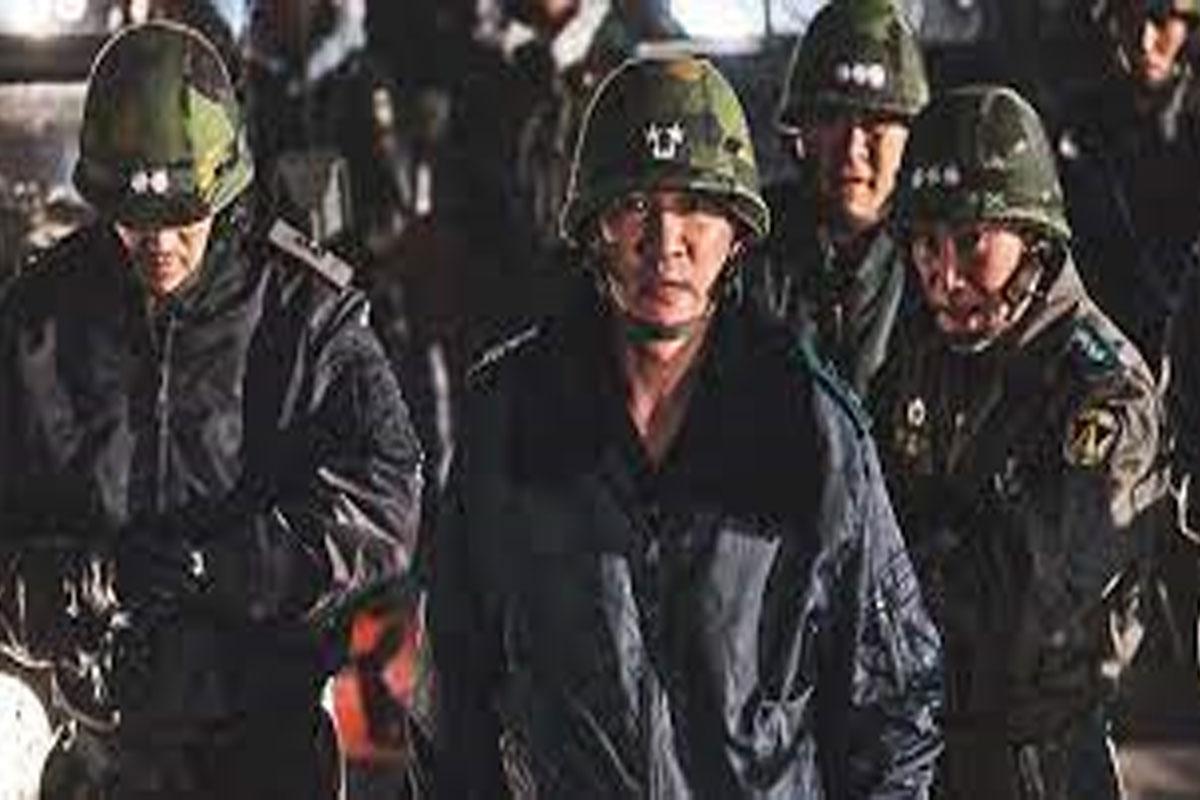
Review of ‘Jesus Revolution,’ true story of a religious movement in the U.S. in the 70s

‘JESUS Revolution’ was a term used by Time Magazine when it wrote about the widespread religious revival that happened in the late 60s and the 70s in Southern California. It combines the hippie counterculture of sex,drugs and rock and roll with evangelical Christianity.
The film with the same title is based on the book (with also a similar title) written by Pastor Greg Laurie that tells his own story of conversion and involvement in the Jesus Movement. Greg is played by Joel Courtney, best known as the teenage leading man in the hit romcom “The Kissing Booth” film series.
We see him first as a high school student who has an irresponsible alcoholic mother and is feeling lost. He then meets Cathe (Anna Barlow), who’s having problems with her own strict parents.
They join a group of hippies but quickly realize that most of them are careless and irresponsible. Cathe’s sister nearly died due to drug overdose. Greg’s life is also put in danger when he rides in a van driven by someone who is high on drugs.
Cathe asks Greg to join him in a church where the preacher is Lonnie Frisbee (Jonathan Roomie, best known for playing Jesus in the streaming series, “The Chosen”). Lonnie has formed a ministry with a California pastor, Chuck Smith (Kelsey Grammer of “Frazier” fame), whose church known as the Calvary Chapel, lacks parishioners.
It’s his daughter Janette (Ally Ioannides) who introduces him to Lonnie, a charismatic hippie street preacher who travels around to talk about about Jesus. He correctly observes that his generation is actually on “a quest for God”, whether they realize it or not.
Chuck is initially doubtful about Lonnie, but when Lonnie introduces him to a band whose songs are about Jesus, he recognizes its potential for his dwindling church to be able to connect with the younger generation. The two of them join forces to start a successful evangelization movement that became very popular.
Its followers are called Jesus Freaks and were featured in a Time special article in 1971. It shows that the movement has spread to other places and states all over America.
What makes the film more absorbing are the personal stories of the major characters. Chuck and Lonnie form a good team, but eventually, they had a falling out because Lonnie calls more and more attention to himself and how he heals their sick members.
Eventually, Lonnie left their group and went to Florida. Chuck then taps Greg to help him. Calvary has now 1,000 chapels all over the U.S.A. while Greg his own Harvest church.
Greg and Cathe’s love story goes through some rough sailing. Cathe’s dad tells Greg to stay away from his daughter as he cannot offer much to her for their future. Greg obeys as he has a truly sad personal life. He never found out who his dad is and his mom continues to be a problem for him.
But in the end, love conquers all for him and Cathe and their reconciliation is one of the most touching scenes in the film. The film’s epilogue says they have been married for 50 years and have two sons and five grandchildren. The film will really appeal even to those who are not Christians as it’s not overtly preachy.
Directors Jon Erwin and Brent McCorkle have come up with good period production values to show the flavor of that era of the flower children, including reasonable facsimiles of popular personalities that time, notably Janis Joplin and Allen Ginsberg, plus footage of the Vietnam War and man landing on the moon.
They also elicited fine ensemble acting from their cast. Kelsey Grammer gives a sincere portrayal of the well meaning preacher who starts as allergic to hippies then becomes a hippie advocate.
Roomie looks old to play Frisbee, but he supplies the dynamism and gravitas needed for the role. The same goes for Joel Courtney who looks old to be a high school student, but he gives a committed performance and shows his acting range in a serious role, specially in the scenes with his delinquent mother.
Also to be commended are the spiritual songs we get to hear all throughout the soundtrack made by Christian pop artists. The film sidesteps how Lonnie was really ousted from the movement and it’s understandable as it’s quite negative for a Christian-based film like this.
We read that the real Lonnie left in a controversial manner because he is gay and subsequently died of AIDS-related ailments in 1993. But of course, that’s another story.





















